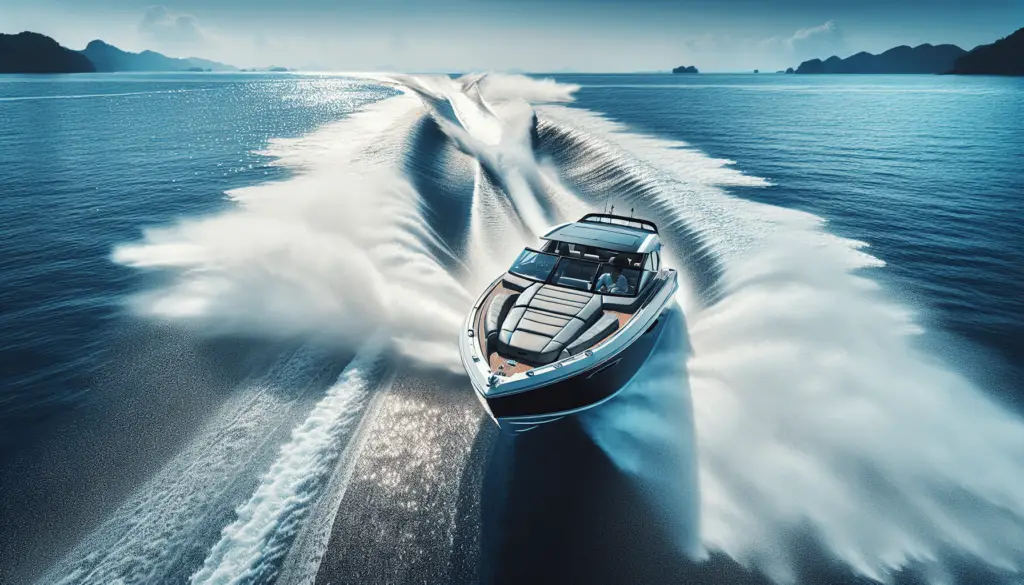Imagine yourself on the sun-drenched deck of your own boat, the salty sea breeze teasing your hair while your hands grip the sturdy helm. It’s marvelous, isn’t it? Yet, taking control of a vessel isn’t as simple as buying one. The article “Boating License Requirements: Do You Need One?” explores the intricate labyrinth of laws and licensing governing the often overlooked aspect of maritime voyages – yes, the humble boating license. Awaken your inner captain as you embark on this enlightening journey of requirements and regulations that hold the key to your maritime adventures.
Understanding Boating Licenses
Boating, a leisure activity that incorporates an element of thrill, adventure, and calm simultaneously, demands a balance of knowledge, skill, and responsibility. Today, you’ll sail into the realm of the boating licenses, charting the waters of their definitions, requirements, and importance.
What is a boating license?
A boating license is your passport to navigate the blue depths. Evolving beyond a mere piece of laminated plastic, it’s an emblem of your proficiency in the art of guiding vessels. It’s a certificate verifying your understanding of the daunting world of maritime regulations and confirming that you can responsibly handle the allure and the threats posed by the high seas.
Why do you need a boating license?
Much like driving on the roads, boating demands attention, knowledge, and appreciation for laws. A boating license ensures the boat operator possesses an understanding of maritime laws, safety protocols and can competently respond to emergencies. It’s a proactive pledge to prioritize safety and respect for the aquatic ecosystem.
Global relevance of boating licenses
Charting international waters, boating licenses are pieces of global currency. They ensure the seamless and responsible enjoyment of boating across borders. Regardless of the waters where your adventures are anchored, the boating license is a universally recognized symbol of your boating competence.
Legal Requirements for a Boating License
The legality of boating is a vast ocean of rules, influenced by regional customs, safety concerns, and the variety of vessels that ply the waters.
Federal vs. State boating laws
In the United States, the dance between state and federal laws forms an intricate performance. While federal laws provide a broad framework for boating regulations, including equipment requirements, navigation rules, and penalties, state laws can inject additional rules tailored to local needs, such as specific age limit or education requirements.
Boating laws for different types of vessels
The type of vessel you commandeer shapes the magnitude of laws that apply. Powerboats, sailboats, and personal watercrafts each command their own sections in the rulebook, with regulations specializing in vessel size, engine power, and usage purposes.
Age and experience requirements for boating licenses
Accompanying the vessel specifics, age and experience requirements form another layer of legal prerequisites. While some states may allow juveniles to operate under certain conditions, others may enforce stricter age limits or insist on boating education courses.

Variations in Boating License Requirements Globally
The globe is speckled with diverse boating license requirements, reflecting the unique sea conditions and cultural nuances of each region.
Boating license requirements in the United States
In the United States, standards require operators to pass a state-approved boating safety course. Majority of the states use the age parameter to determine mandatory education requirements for boaters.
Boating license requirements in Canada
In Canada, operating a power-driven boat demands a Pleasure Craft Operator Card, attained by passing an accredited boat safety course and subsequent exam.
Boating license requirements in Europe
Europe presents a mosaic of boating license requirements. Some countries like the United Kingdom don’t require a license for recreational boating, while others like France and Germany insist on specific licenses, depending on factors like horsepower of the boat and the waters you’ll be navigating.
Boating license requirements in other regions
In Australia, anyone operating a vessel with an engine power greater than 4.5kW needs to possess a general boat driving license. New Zealand, on the other hand, does not demand a license unless jetskis are involved.
Do All Boats Require a License?
The allure of different boats has spun a complex web of license requirements.
Requirements for personal watercrafts (PWC)
PWCs, beloved for their agility and thrill, often carry stricter licensing restrictions due to their potential to pose higher risks.
Requirements for sailboats
For many states, the serene charm of sailboats doesn’t necessitate a license unless they’re fitted with a motor.
Requirements for powerboats
Commanding the raw power of engines, powerboat operators usually need a boating license or must have completed a safety course.
Requirements for non-motorized vessels
Non-motorized vessels like canoes, rowboats, or paddleboards often slip under the radar of licensing requirements due to their minimal potential for danger.

How to Get a Boating License
The process to earn a boating license is an enlightening journey of knowledge, tests, and some expenditure.
Basic steps to obtain a boating license
The first waypoint in this journey is to take a state-approved safety course, either in a classroom or online. You then have to prove your acquired knowledge by passing an exam before obtaining your permit.
Process of studying and passing the exam
Taming the vast sea of boating knowledge demands consistent studying and understanding of key concepts. Passing the exam becomes a testament to your nautical wisdom and commitment to maritime safety.
Estimation of the costs involved
The bid for a boating license will pull some coins from your hoard. These costs include fees for the course, the exam, and the issuance of the license itself, and may vary according to region and course provider.
Renewal process of a boating license
Your license won’t leave you marooned undoubtedly. When time erodes its validity, you can renew it by a specific process involving documentation and fees, given you must remain in good standing with maritime laws.
Understanding Boating Licenses Regulations
At the helm of your vessel, the boating license also places you in command of an array of crucial maritime regulations.
Understanding navigational rules
When you’re skirting the blue panorama, the ability to interpret and adhere to navigational rules is a lifeline that could prevent collisions and accidents.
Comprehending safety guidelines
Appreciating maritime safety guidelines ensures peace of mind for you and fellow boaters. These rules concern areas like life-jacket use, safe fueling, and operating speed.
Emergency preparedness and procedures
Emergencies at sea might be surreal scenarios painted against azure backgrounds, but they are real. A good grasp of rescue signals, distress situations and first aid procedures can save lives.
Penalties for Operating a Boat without License
Sailing with the wind of legality at your back also helps you avoid the stormy aftermath of law-breaking.
Fine and legal consequences
Operating a boat without a license can lead to hefty fines, but the repercussions might not stop at your wallet. Depending on the severity of the offense, you may end up dealing with increased legal scrutiny.
Impacts on insurance premiums
Your moments of maritime rebellion could resurface when you’re seeking boat insurance. Higher premiums or even outright denial are maybe waiting around the corner.
Possible revocation of boating privileges
Straying beyond the bounds of law on repeated occasions could result in a temporary or permanent loss of your boating privileges.
Benefits of Having a Boating License
The boating license is far from a grudging concession to legality. It packs a treasure trove of benefits that elevate your oceanic escapades to new levels of safety and enjoyment.
Increased safety on the water
Knowledge is your anchor in unpredictable waters. Equipped with the information you need to navigate through potential obstacles, a boating license significantly increases your safety onboard.
Greater knowledge and confidence while operating a boat
The process of earning a boating license offers a wealth of knowledge, refining your boating techniques and boosting your confidence when you take the helm.
Possible insurance discounts
With a boating license as proof of your maritime wisdom, you might sail into the world of insurance discounts, making each journey slightly easier on your pocket.
Better preparation for boat rentals while on vacation
On vacation, a boating license stands as a globally recognized proof of aptitude, allowing you to rent boats and explore uncharted waters efficiently.
Common Misconceptions about Boating Licenses
The boating license, while essential, often gets lost in high waves of misconception.
Difference between a boating license and a vessel registration
Remember, a boating license is not a registration for your vessel. It’s an authorization for you as an individual to operate a boat.
Presumption of not needing a license for personal watercrafts
Often, personal watercrafts like jet skis necessitate stricter compliance with licensing laws due to their potential for risk.
Assumption of one license being valid across all territorial waters
While your license presents your competence on a global scale, remember that different waters might require additional permits or certifications.
Idea of not needing a license for non-motorized vessels
The currents of licensing requirements can sway non-motorized vessels towards compliance too. Always check local regulations before casting off.
Young Boaters and Licensing Requirements
Youth comes hand in hand with a desire for adventure. For young maritime enthusiasts, understanding licensing requirements is essential.
Age restrictions for boating licenses
The threshold age for acquiring a boating license varies according to regional laws, with many places requiring parental permission for sailors below a specified age.
Special courses for young boaters
Boating courses often provide special programs catering to the specific learning needs of younger students.
Familiarization with rules and safety protocols for young boaters
Acquainting young sailors with the rules of the seas – from right-of-way protocols to emergency procedures – helps to foster a generation of responsible, law-abiding boaters primed to respect the sea and their compatriot sailors.
Navigating the waters of boating licenses might indeed seem daunting, laden with heavy terminology and stern regulations. Yet, the essence of these licenses lies in safeguarding both your own enjoyment and the well-being of the precious marine world we cherish. They’re your passport to a world where human and oceanic realms harmoniously coexist, a world where the song of the sea is beautifully punctuated by the hum of engines and the slicing of hulls through waves. Shine your license with pride, for it’s a testament to your maritime wisdom and the seafaring adventurer within you.

